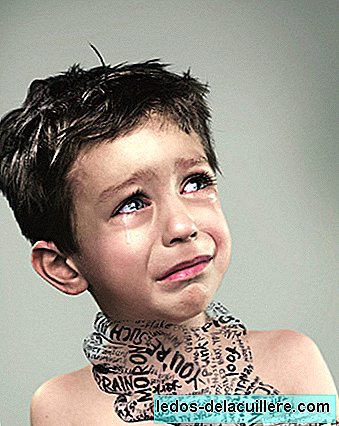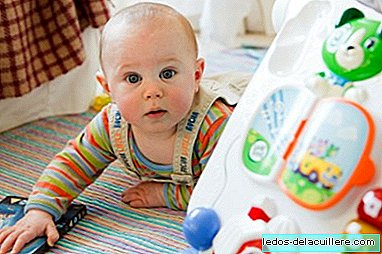
It is no secret to anyone that our society is extolling the ego more than ever causing distortions of our own image. But what about the children? Recently an investigation by a group of universities came to light where it was analyzed the role that parents have had in generating narcissistic attitudes in their children. Although it is intuited that the relationship is direct, the conclusions are very interesting.
Overvalue, the main factor
The study is clear: parents who overvalue their children and instill in them that they should receive special treatment or they extol their achievements or qualities by comparing them with those of other children, they are putting the seed of narcissism in their personality. Although it is not the only cause, this attitude does greatly increase the possibility of raising narcissistic people.
When children are seen by parents as superiors and imply that they have more rights than other children, they can internalize that other individuals have a superior value, which is a clear source of narcissism. On the contrary, when children are treated by their parents with affection and appreciation, they can internalize that they are valuable as individuals, which is a clear source of self-esteem.
Can narcissism give way to other negative attitudes?
According to the observations, definitely yes. When an individual is narcissistic and does not get the treatment he thinks he deserves, it can lead to frustration and aggressive attitudes, which in turn can trigger episodes of depression or violence, as we read in The Washington Post.
The downside of this is that when this happens in childhood, it is very likely to be a direct conditioning of our personality in adulthood. According to experts, this type of situation can make an adult insecure or have a good chance of being prone to using drugs.
7 years: the key age
According to the study, the range of 7 to 12 years is crucial to define many behavior patterns, since it is in that period that children are already able to interpret if they are happy with themselves and also tend to compare with others. Hence, it is so important to have cultivated more self-esteem taking care that they have a positive image of themselves.
It is important to keep in mind that at that age Children are especially sensitive to the opinion of their parents, so you have to take special care of the kind of compliments we make to you ... it is not the same to tell a child "how smart you are" to "you are the smartest in the family", for example. It is also very important to emphasize aspects of the child's way of being, of how we like personality traits, more than in its physical aspect.
Inculcate self-esteem and values
It is clear that for us our children are everything and sometimes, for the love we have for them, we tend to overestimate their milestones and make excessive compliments. However, we must be careful with our attitudes towards them because we can cross that thin line that divides a destructive and constructive self-esteem, which is what we must instill.
Respect his personality, encourage him, congratulate him for the good things he does, explain that it is normal that things do not go as we want them but that with effort he can achieve anything, teach him to recognize his own successes These are some of the attitudes we can teach you to promote your self-esteem in a healthy way, so that you are happy with yourself without having to compare yourself with others.

If you are thinking about tools that we can use to do it, we have them at hand: share time with them, play (we wrote an article for a while where we talked about their importance in the process of acquiring self-esteem), talk about our environment and the situations we live day to day are just some examples of how We can help our children strengthen their personality in a natural way.
I am aware that today it is a little more difficult than before to fight against the avalanche of egocentrism. Social networks, which children enter at an increasingly early age is an example of what we face today: I have already seen with my own eyes that a child upload a selfie and look forward to the positive comments of their friends, so the challenge is greater than our parents had some time ago.
I think the key is to lead by example; Perhaps humility is one of the best virtues that a person can have but that is increasingly downward ... from time to time it may be convenient to self-assess and look at what kind of attitudes we are reflecting in our children.
Images | Bigstock












